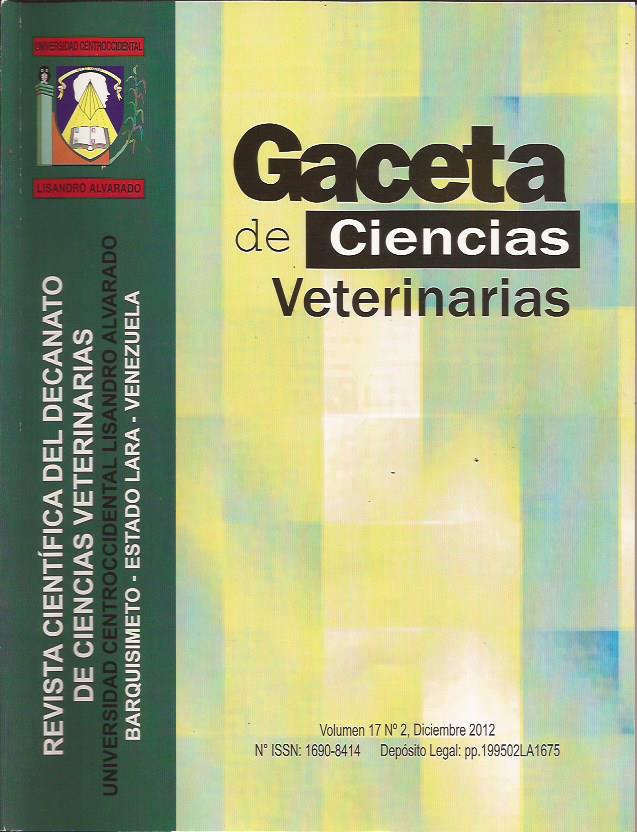BRCA 1 and 2 gene expression in bitches (Canis lupus familiaris) mammary tumors and its association with clinical-pathological parameters
Keywords:
BRCA 1, BRCA 2, mammary tumor, bitches, qPCRAbstract
Breast cancer susceptibility genes 1 and 2 (BRCA 1 and 2) are tumor suppressor genes responsible for repairing damaged DNA. Investigating the expression levels of BRCA 1 and 2 and associating it with the expression of proteins involved in breast cancer in dogs will be very useful for advances in the study of breast cancer in both women and dogs. The objective of the present study was to determine the expression, through real-time PCR in neoplastic mammary tissue, of the BRCA 1 and 2 gene and its association with clinical-pathological parameters in Cocker, Poodle and crossbred bitches. Real-time PCR was performed and the level of expression of BRCA 1 and 2 normalized with β-actin was quantified through the 2 Delta Delta CT method. It was observed that BRCA 1 is not associated with clinical-pathological parameters and is not an indicator of malignancy in Cocker, Crossbred and Poodle bitches. BRCA 2 was found in low expression in the mammary tumors of Cocker and Mestiza bitches, and is associated with ERα positivity. It is concluded that the expression of BRCA 1 and 2 in the mammary tumor is heterogeneous by individual. Taking into account the family inherited nature of the gene in the development of breast cancer, its study can provide more information in those races with a clear predisposition to the disease. Keywords: BRCA 1, BRCA 2, mammary tumor, bitches, qPCR.
Downloads
References
Narod SA, Rodríguez A. Predisposición genética para el cáncer de mama y genes BRCA1 y BRCA2. Salud Pública Méxic. 2011; 53:420-429.
Pierce AJ, Stark JM, Araujo FD, Moynahan ME, Berwick M, Jasin M. Double-strand breaks and tumorigenesis. Trends Cell Biol 2001; 11:S52-S59.
Varol U, Kucukzeybek Y, Alacacioglu A, Somali I, Altun Z, Aktas S et al. BRCA genes: BRCA1 and BRCA2. J Balkan Union Oncol. 2018; 23(4): 862-866.
Foulkes WD, Metcalfe K, Sun P, Hanna WM, Lynch HT, Ghadirian P et al. Estrogen receptor status in BRCA1 and BRCA2-related breast cancer: The Influence of age, grade and histological type. Clin Cancer Res. 2004; 10:2029-2034.
Rivera P, Melin M, Biagi T, Fall T, Haggstrom J, Lindblad-Toh K et al. Mammary tumor development in dogs is associated with BRCA1 and BRCA2. Cancer Res. 2009; 69:
-8774.
Rivera E. Molecular biological aspects on canine and human mammary tumors. Vet Pathol. 2011; 48:(1) 132-146.
Gardner HL, Fenger JM, London CA. Dogs as a model for cancer. Annu Rev Anim Bioscic. 2016; 4:199-222.
Livak y Schmittgen. Analysis of relative gene expression data using real-time quantitative PCR and the 22 DDCT methods. 2001; 25, 402-408.
Ochiai K, Yoshikawa Y, Oonuma T, Tomioka Y, Hashizume K, Morimatsu M. Interactions between canine RAD51 and full length or truncated BRCA2 BRC repeats. Vet J. 2011; 190(2): 293-295.
Klopfleisch R, Gruber AD. Increased expression of BRCA2 and RAD51 in lymph node metastases of canine mammary adenocarcinomas. Vet Pathol. 2009; 46: 416-422.
Yoshikawa Y, Morimatsu M, Ochiai K, Ishiguro-Oonuma T, Wada S, Orino K et al. Reduced canine BRCA2 expression levels in mammary gland tumors. BMC Vet Res. 2015;11: article n° 159 . https://doi.org/10.1186/s12917-015-0483-9
Al-Mulla F, Abdulrahman M, Varadharaj G, Akhter N, Jehoram T. Animal BRCA1 gene expression in breast cancer: A correlative study between Real-time RT-PCR and immunohistochemistry. J Histochem Cytochem 2005; http://www.jhc.org 53(5):621-629.
Sugiura T, Matsuyama S, Akiyosi H, Takenaka S, Yamate J, Kuwamura M et al. Expression patterns of the BRCA1 splicing variants in canine normal tissues and mammary gland tumors. J Vet Medicin Sc 2007; 69(6): 587-592.
Decuadro Barboza A. Tumores de mama en caninos. Determinación de polimorfismos en los genes BRCA1/BRCA2 y correlación entre la presentación clínica y la estadificación histopatológica. [Tesis de maestría. Internet] Montevideo: Universidad de la República (Uruguay). Facultad de Veterinaria.. 2021. [citado: 2022, abril] 113 h. https://hdl.handle.net/20.500.12008/28768
Loredo-Pozos Ch E, Oceguera-Villanueva A, Panduro A, Siller-López F, Ramos-Márquez M. Expression profile of BRCA1 and BRCA2 genes in premenopausal mexican women with breast cancer: Clinical and immunohistochemical correlates. Medicin Oncol 2009; 26:269-275.
Venkitaraman AR. Cancer susceptibility and the functions of BRCA1 and BRCA2. Cell 2002; 108:171-182.
Hedenfalk I, Duggan D, Chen Y, Radmacher M, Bittner M, Simon R et al. Gene-expression profiles in hereditary breast cancer. New England J Medicin 2001, 22; 344(8):539-548.
Espinosa E, Fresno JA, Redondo A, Sánchez JJ, Hardisson D, Zamora P et al. Breast cancer prognosis determined by gene expression profiling: A quantitative reverse transcriptase polymerase chain reaction study. J Clin Oncol 2005; 23:7278-7285.
Published
How to Cite
Issue
Section

This work is licensed under a Creative Commons Attribution-NonCommercial-ShareAlike 4.0 International License.
Gaceta de Ciencias Veterinarias se apega al modelo Open Access, por ello no se exige suscripción, registro o tarifa de acceso a los usuarios o instituciones. Los usuarios pueden leer, descargar, copiar, distribuir, imprimir y compartir los textos completos inmediatamente después de publicados, se exige no hacer uso comercial de las publicaciones. Para la reproducción parcial o total de los trabajos o contenidos publicados, se exige reconocer los derechos intelectuales de los autores y además, hacer referencia a esta revista. La publicación de artículos se hace sin cargo para los autores. Los trabajos pueden consultarse y descargarse libremente, y de manera gratuita, en extenso en versión digital, desde su enlace Web institucional. Los textos publicados son propiedad intelectual de sus autores. Las ideas, opiniones y conceptos expuestos en los trabajos publicados en la revista representan la opinión de sus autores, por lo tanto, son estos los responsables exclusivos de los mismos.



